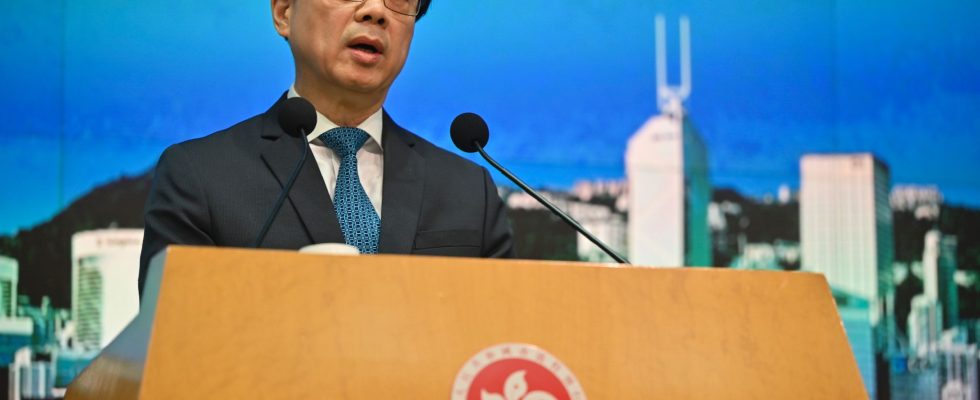Four years after the text imposed by Beijing to quell dissident desires, Hong Kong is preparing its own national security law. An announcement made this Wednesday, October 25 by John Lee, the leader of the province located in southern China.
“External forces continue to interfere in Hong Kong’s affairs,” said John Lee, the leader dubbed by Beijing, adding that the city “will continue to preserve national security and improve its legal system and mechanisms” of control. And to accuse “certain countries” of “undermining China and the implementation of one country, two systems”, this principle which grants Hong Kong partial autonomy.
Beijing’s takeover of Hong Kong
Implicitly, a reference to the text imposed by Beijing four years earlier, following major pro-democracy demonstrations which broke out in 2019 in the Asian financial center, and during which hundreds of thousands of people took to the streets to demand more freedoms and autonomy from mainland China.
To ensure a rapid return to order, Beijing then imposed a national security law repressing any participation in acts of secession, subversion, terrorism and collusion with foreign forces. And the penalties are severe, up to life imprisonment.
According to figures from the Hong Kong Security Bureau, a total of 280 people were arrested until the end of September and 30 sentenced under the national security law in force since its promulgation by Beijing in 2020. Many have also fled abroad for fear of arrest.
Constitutional responsibility
This, even though a “basic law”, serving as the Constitution in the Chinese special administrative region, provides for the obligation for Hong Kong to develop its own legislation concerning seven security offenses, including treason and espionage. .
“The government continues to develop effective legislative options and will complete the legislative project in 2024 in order to fulfill our constitutional duty,” John Lee promised this Wednesday, October 25. If the initiative comes to fruition, it would be a first for Hong Kong, which has never managed to produce a text since the return of the former British colony to China in 1997.
Strengthening patriotic education
The city will “develop patriotic education to (strengthen) national identity […] laying a good foundation for our national unity and solidarity,” John Lee also said on Wednesday. A task force will be created to “advance national education and align with the Patriotic Education Act of the Republic people of China,” he added.
This announcement comes the day after Beijing promulgated a law on Tuesday aimed at strengthening patriotic education for children and families, according to Chinese state media.
